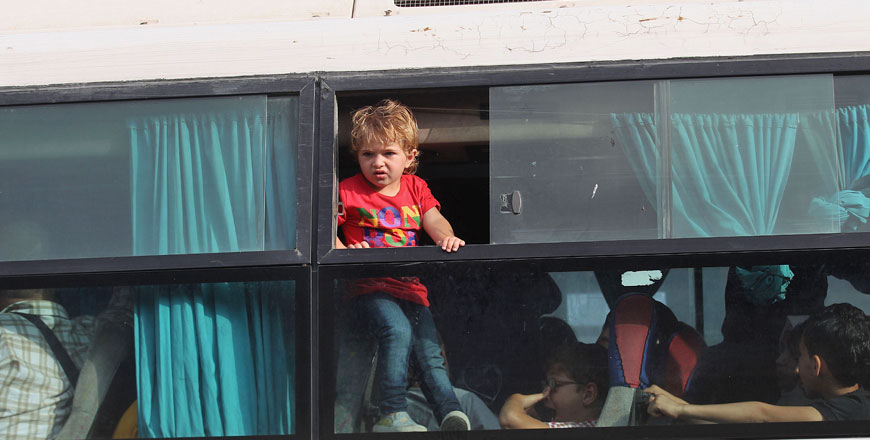RAFAH, Palestinian Territories — Egypt opened the Rafah border crossing with the Gaza Strip Tuesday, a Palestinian official said, allowing the delivery of cement supplies into the badly destroyed territory.
The move, which also allowed Palestinians to leave and enter Gaza, came almost a year after the outbreak of a bloody and destructive 50-day war between Israel and Hamas, with tens of thousands of homes still in ruins.
Egyptian authorities have now opened the crossing three times during the last month, making officials in Gaza hopeful that Cairo might ease restrictions on movement to and from the coastal enclave.
Until last year, Palestinians were able to leave via Rafah, but since October the frontier has been closed as Cairo struggles with a growing insurgency in the Sinai Peninsula, for which it partly blames Islamist militants in Gaza.
Restrictions across the border have also been tight since the 2013 overthrow in Cairo of Islamist president Mohamed Morsi, whose Muslim Brotherhood organisation is an ally of Hamas.
"Rafah will be open for three days... to allow sick people, students studying abroad and those with foreign residency permits" to come or go, Maher Abu Sabha, director of border crossings in Gaza, told AFP.
Cairo was also allowing an "important quantity" of cement of enter the strip, he said.
"This is a sign of a warming of relations with Egypt," he added.
Earlier this month, Egyptian authorities allowed 3,520 tonnes of construction material into Gaza, Egyptian sources told AFP on condition of anonymity.
The material is needed to repair a large amount of damage caused during the July-August war which killed 2,200 Palestinians, 73 on the Israeli side, mostly soldiers, and destroyed tens of thousands of homes, leaving 100,000 people homeless.
Repairs have been made to a number of partially damaged homes, the UN says, but those totally destroyed have yet to be rebuilt.
Israel's ongoing blockade, now in its ninth year, has been blamed as well as a lack of international donor support.
Israel says more than 1.1 million tonnes of construction material have been allowed in since October 2014 through Kerem Shalom, the goods crossing it controls.
Critics of the blockade have called for it to be fully lifted to allow reconstruction, warning that an ongoing humanitarian crisis could fuel further conflict.
